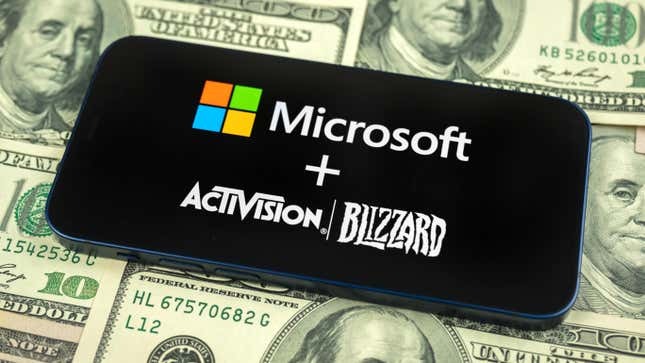Microsoft completes $69 billion Activision Blizzard acquisition
4 min read
Approval granted after addressing competition concerns.
Microsoft has completed its acquisition of Activision Blizzard for $69 billion, the game developer responsible for popular titles like Call of Duty and World of Warcraft. The UK’s competition regulator, the Competition and Markets Authority (CMA), initially opposed the deal in April, expressing worries about Microsoft’s potential dominance in the emerging cloud gaming sector. However, the CMA approved the deal in the previous month, noting that revised terms, including the sale of cloud gaming rights beyond Europe to Activision’s competitor Ubisoft, adequately addressed the concerns. The CMA officially granted approval on Friday, and Microsoft confirmed the completion of the transaction in a regulatory filing.
Sarah Cardell, the CEO of the CMA, highlighted that the regulator has implemented measures to prevent Microsoft from gaining undue control over cloud gaming, a technology allowing users to stream video games from remote servers to their devices.
Cardell affirmed, “As cloud gaming expands, our intervention will ensure consumers enjoy the advantages of more competitive pricing, enhanced services, and expanded options.”
In her statement, Cardell criticized Microsoft, asserting that the company initially pursued an unviable deal structure and only made amendments later.
She stated, “It should be clear to businesses and their advisors that the strategies Microsoft employed are not a suitable way to interact with the CMA.” Cardell added, “Microsoft had the opportunity to revise their proposal during our initial investigation, but instead, they insisted on a set of measures that we had clearly communicated would not be effective.
The evolution of the regulatory process surrounding the deal has surprised some experts. In April, the CMA initially indicated its intention to block the deal. However, in July, it endorsed Microsoft’s decision to temporarily halt an appeal against the prohibition and announced its intention to engage in discussions about a revised transaction.”
Cardell affirmed that the CMA’s reputation remained intact throughout the deal’s discussions. She stated, “The CMA’s reputation remains strong through this process. It’s clear we’ve stood firm despite various opinions, insisting that this deal could only proceed if our concerns were properly addressed.”
Gustaf Duhs, a partner at the UK law firm Stevens & Bolton and a former CMA lawyer, supported the watchdog’s approach. He mentioned that the irregularities in the case were not due to the CMA’s actions. He also highlighted Cardell’s statement that the organization “does not want this process to be replicated in future cases.”
However, Max von Thun, the Europe director at the Open Markets thinktank, expressed concerns about the potential “risk that merging companies and their advisors may no longer accept a negative response from the CMA.”
The CMA indicated that Microsoft’s concessions regarding cloud gaming would enable Ubisoft to provide multi-game subscription services, allow the use of non-Windows operating systems for Activision content in cloud gaming services, and maintain competitive pricing for such services. These concessions, under a 15-year agreement with Ubisoft, prevent Activision’s titles from being exclusively available on Microsoft’s Xbox Cloud Gaming service.
After the initial rejection by the CMA, Activision accused the UK of being “closed for business.” CEO Bobby Kotick conveyed excitement about “spreading happiness and connecting with even more players worldwide” in a message to staff on Friday. Kotick will continue in his position until the end of the year, with Phil Spencer, Chief Executive of Microsoft Gaming, overseeing the Activision business.
Phil Spencer presented the acquisition as a strategic move for Microsoft to enter the lucrative mobile gaming market, valued at over $90 billion. Activision, known for popular mobile titles like Candy Crush Saga and Call of Duty: Mobile, which were not part of the Ubisoft agreement, is a significant player in this market.
The CMA found itself increasingly isolated in its decision to block the takeover, especially after its EU counterparts approved the deal. Microsoft offered alternative concessions related to cloud gaming rights in the European Economic Area, and the US competition regulator failed to secure a court injunction to halt the transaction.
While the US Federal Trade Commission (FTC) opposes the deal, it has been unable to prevent Microsoft and Activision from finalizing it. Law professor Rebecca Allensworth at Vanderbilt University suggested that even if an internal trial within the FTC were to block the deal, unwinding it is unlikely, as a federal court might take a different stance.
“The decision within the FTC would need to withstand scrutiny in federal court, which appears improbable, especially given that earlier this summer, a court declined to halt the deal, even without the restructuring that aimed to reduce competitive concerns,” she remarked. The FTC stated on Friday that it is focusing on its appeal but will “evaluate” Microsoft’s agreement with Ubisoft.



